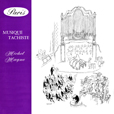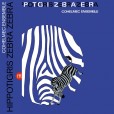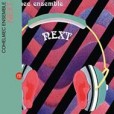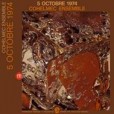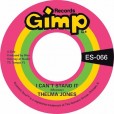Your basket is empty

The Vannier collaborator births this Finders Keepers’ imprint with a late-sixties knockabout conceptual-pop riposte to musique concrete: found sound, industrial noise, piano jazz, avant orchestration, signature cimbalom.
‘Recorded across East London, South-East Kent and Snaresbrook Crown Court during what is described as “the UK media’s attempt at divining integrity from the orchestrated turbulence of Brexit”, with the record setting out to “juggle the documentation of this particular moment with the desire to discern motivation from despair”. World In Action takes in field recordings, woodwind freakouts and percussion from Valentina Magaletti amongst other elements’ (The Quietus).
COH as in Jean Cohen (saxophones), EL as in Dominique Elbaz (piano) and MEC as in the brothers François and Jean-Louis Méchali (bass and drums) — joined by the American clarinettist and flautist Evan Chandlee for this debut album, originally released by Saravah in 1969.
“We wanted to avoid that kind of ‘free’ which is characterized by pounding drumming and a saxophonist freaking out in the high register, that type of music that kicks off suddenly then stops without us being able to sense the motivation. There is never any difference in intensity: nothing is destroyed, nothing is created, nothing is elaborated, nothing is questioned — when, even on the simple level of sound, there is so much that can be done.”
With French roots running back through the music of Jef Gilson, and pitched at the time somewhere between ESP and Actuel/BYG, with full-blooded nods to the likes of Cecil Taylor, John Coltrane and Walt Dickerson, this is expert, exuberant music-making, searching out its own way.
Ten tracks, even-handedly improvised and composed, beautifully played; intense and free-spirited but always engaging, attentive and communicative.
Top-notch sound; heavyweight gatefold sleeve with obi-strip; twelve-page booklet.
Their second LP, from 1971, with guitarist Joseph Dejean from the Full Moon Ensemble propelling the music forwards, as pianist Dominique Elbaz stands down.
The sound swells and contracts dramatically across the eleven tracks and interludes, with fresh senses of break-down and silence, and new intimacy. There is some Steve Lacy to its fierce repetition of key phrases; some Sharrock to Dejean; sparing experimentation with effects; portions of central African polyphony (Boa Constrictor), summer-breeze funk (Desert Angel), and plenty of characteristically rootsy prog and cosmic skronk.
A live recording of a concert given at the Theatre de l’Est Parisien.
Stretched-out but closely textured and highly evocative, more bluesy than before, and brooding with Milesian intensity.
There is a strong spirituality to all of Cohelmec’s music ... but here they go deep.
Try Teotihuacan. Killer.
Bringing together two EPs of hushed, late-night atmospherics.
Intense, dreamlike songs influenced by folk and minimalism, and informed by feminism, ecology and posthuman communication, deploying magnetic tapes, field recordings, and bits from the speech of contemporary thinkers, besides harmonium, organ, violin and cello, toy and electric guitar, and a small choir.
